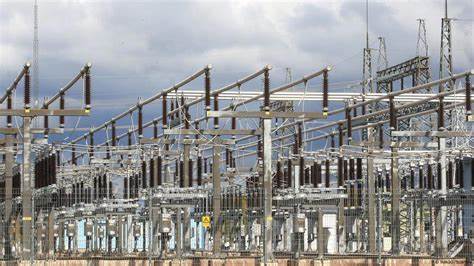by Admin
Feb 8, 2025
In a significant move to strengthen their energy independence and European integration, the Baltic states Estonia, Latvia, and Lithuania disconnected from Russia’s power grid on Saturday.
The region’s electricity operators confirmed the shift, which marks a historic milestone in their decades-long plan to sever ties with Moscow’s energy infrastructure.
Following the disconnection from the IPS/UPS joint network, the three nations will synchronize with the European Union’s electricity grid at 1200 GMT on Sunday, pending final technical assessments. In the interim, they will operate independently.
“We have finally achieved the goal we have pursued for so long. We are now in control of our energy future,” Lithuanian Energy Minister Žygimantas Vaičiūnas announced at a press conference.
The Baltic states, which regained independence from the Soviet Union in the early 1990s and joined the EU and NATO in 2004, have sought for years to cut their reliance on Russian infrastructure.
While discussions about decoupling from the Russian grid have been ongoing for decades, Moscow’s annexation of Crimea in 2014 accelerated the process.
Until now, the power grid was the last major infrastructure link between the three nations and Russia.
Even after ceasing electricity imports from Moscow following Russia’s 2022 invasion of Ukraine, Estonia, Latvia, and Lithuania continued to depend on the Russian grid to regulate frequencies and ensure network stability.
“By ending the Baltic states’ energy dependence on Russia, we are denying the aggressor the ability to use energy as a weapon against us,” Estonian Foreign Minister Margus Tsahkna stated.
Amid fears of potential sabotage attempts, an army truck was deployed to the Rezekne power substation near the Latvia-Russia border, and armed officers patrolled the vicinity and surrounding areas.
The heightened security underscores the region’s concerns over possible Russian interference during the transition.
European Commission President Ursula von der Leyen is scheduled to speak at a ceremony on Sunday to commemorate the synchronization with the EU grid.
Despite the high-stakes transition, Latvian Energy Minister Kaspars Melnis assured that the process was proceeding seamlessly. “The system is stable, the process is happening smoothly, and no one is noticing any disruptions,” he told Reuters following the decoupling.
The successful switch marks a new chapter for the Baltic states, further solidifying their integration into the European energy market and reducing vulnerabilities to Russian influence.

